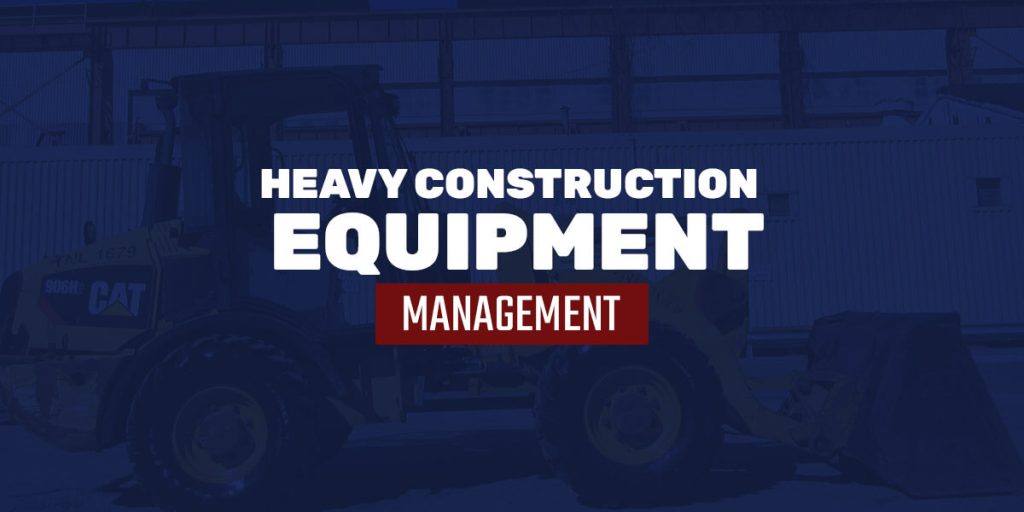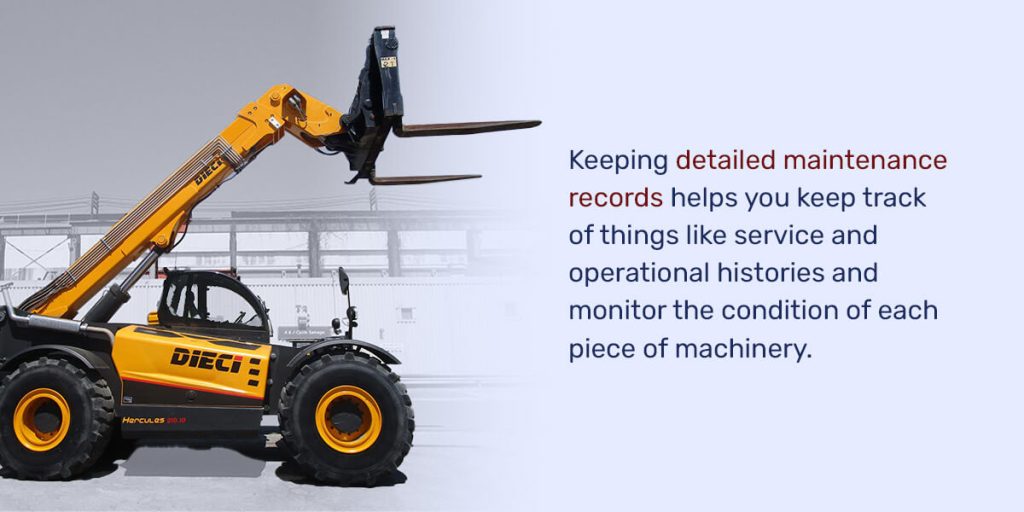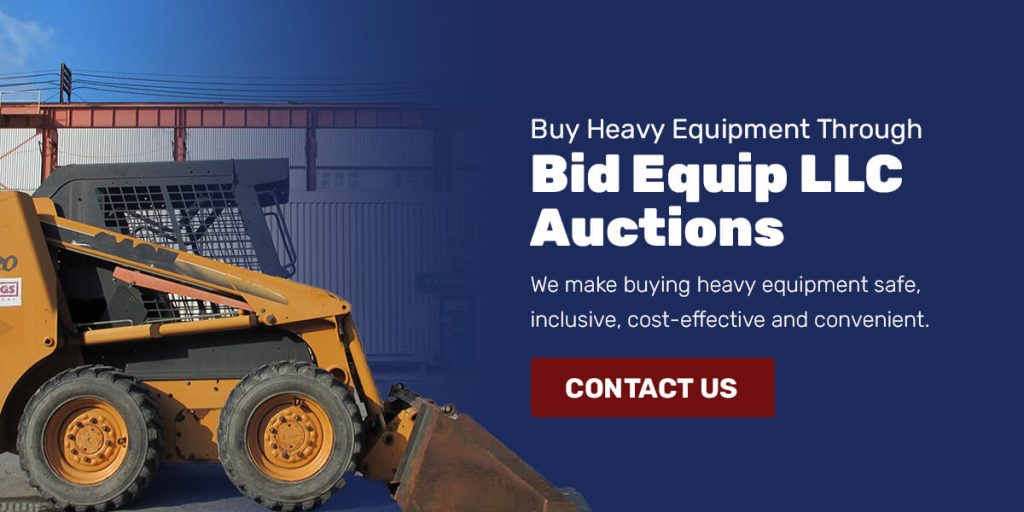Heavy Construction Equipment Management
A significant aspect of managing heavy construction equipment is ensuring maintenance is completed. A construction equipment maintenance plan helps you and your team stay organized and on track with service checks and preventive maintenance. Learn more about preventive maintenance and creating a maintenance program to keep your heavy equipment in optimal condition.
The Importance of Being Proactive With Heavy Machinery Maintenance
Being proactive with machinery maintenance is one of the most important things you can do for your heavy equipment. Proactive care and maintenance of equipment help protect and extend the life of your machinery. Preventive maintenance helps you keep track of your equipment’s condition and catch minor breaks or missing parts before they become big costly problems.
Heavy machinery is an investment and should be treated like one. Proactive maintenance is essential to the life span of your equipment. When you keep it clean and take care of small issues promptly, you’ll get more use out of the machine over a longer period.
Preventive Maintenance Program Benefits
Preventive maintenance programs can benefit several aspects of your business, including costs and operations. Here are a few examples:
- Prevents downtime: Preventive maintenance allows you to catch and fix minor problems with your machinery before they become serious problems that require major repairs. Major repairs often require your machines to be out of commission, which can lead to downtime for the machine and your company as a whole. Any time your business is operating below full capacity, you’re losing money. A thorough maintenance program can help prevent downtime and loss.
- Reduce repair bills: While repairing heavy equipment is necessary to your operations, doing so often comes at a great cost. When you’re able to catch and repair small problems before they need major repairs, you can save a significant amount of money on repair bills over time. Even if you’re making more consistent small repairs, the cost will typically be lower than major repairs.
- Improves equipment efficiency: Heavy equipment naturally wears down over time and with heavy use. Preventive maintenance like oil changes, part replacements and general inspections help keep your machines in effective working order. When your equipment is working efficiently, you use fewer resources and less energy while getting optimal amounts of work done. Improving machine efficiency also increases the life span of your equipment, allowing you to get more hours out of a machine.
- Increased workplace safety: When equipment is in poor condition, it’s more likely to fail and create hazardous working conditions. With a preventive maintenance program, you or your employees have a better chance of catching anything that could cause a breakdown or accident before it happens. Doing so helps prevent unsafe conditions and helps lead to an overall safer work environment.
Common Causes of Machinery Failures
One of the biggest causes of machine and equipment failure is overlooking the importance of preventive maintenance. It’s easy to forget or push back maintenance checks when your team is busy or overwhelmed with high amounts of work. This is often when maintenance gets skipped under the assumption the equipment will be fine.
However, equipment can be negatively impacted when small issues are missed. Taking a bit of extra time to complete preventive maintenance checks allows you and your team to catch and attend to issues before they result in machine failure.
Aside from overlooking preventive maintenance, other common causes of equipment failure include:
- Overworking the equipment: When you’re running behind or have a lot of work to get done, it’s easy to forget your machines have limits. Overworking your equipment can put unnecessary strain on the machines, overheat the engine and result in premature failure. Be sure to allow your machines time to cool down to prevent these issues.
- Ignoring warning signals: When something on a machine needs attention, a warning light will often turn on. Whether it be high engine temperature or low fluid levels, a dashboard light should notify the operator. To avoid making a small problem worse, you should address warning signals immediately. If employees continue to operate a machine with warning lights on, there is an increased chance of machine failure.
- Untrained operators: Ideally, anyone operating a piece of machinery would be properly trained to use the machine. However, it’s common for untrained employees to get put in machines they’ve never been trained to use when staffing issues or unexpected absences occur. In addition to creating unsafe situations, allowing untrained employees to operate machinery increases the chance of the equipment being used improperly and ultimately failing.
Other Maintenance Tips
Though creating a maintenance program can seem complicated, it can be extremely helpful when you make the right considerations. Here are some more specific tips regarding a construction equipment maintenance program:
1. Keep Maintenance Records
Each of your machines is likely used at different times and rates, which means they’re likely serviced at different times. If you have a fleet of heavy machinery, it’s nearly impossible to remember when everything needs to be serviced. Keeping detailed maintenance records helps you keep track of things like service and operational histories and monitor the condition of each piece of machinery.
For example, records help you determine when machines got their last oil change and when they’re due for the next one. This is especially helpful for personnel and shift changes so everyone is on the same page at all times.
2. Follow Manufacturer-Recommended Maintenance Intervals
Equipment manufacturers know their machines best, which is why they typically recommend intervals at which maintenance and service checks should be completed. For example, they may recommend certain tasks be completed every three months and others every six months. It’s best to abide by these suggested maintenance routines to keep your machines in the best condition.
3. Establish a Preventive Maintenance Checklist
In addition to keeping maintenance records, you might consider establishing a heavy equipment maintenance checklist. Organize your checklist with a list of each task that needs to be completed at daily, monthly, seasonal or yearly intervals. Creating a checklist helps remind you and your team what needs to be done when and can help you remember to set aside allotted time for maintenance at those intervals.
Buy Heavy Equipment Through Bid Equip LLC Auctions
If you’re looking to buy heavy equipment for your business, whether it be for manufacturing, construction or industrial applications, consider shopping for used machinery online. Bid Equip LLC hosts online auctions for used heavy equipment. We make buying heavy equipment safe, inclusive, cost-effective and convenient.
Explore our website to learn more about bidding for heavy equipment or contact us for more information!














